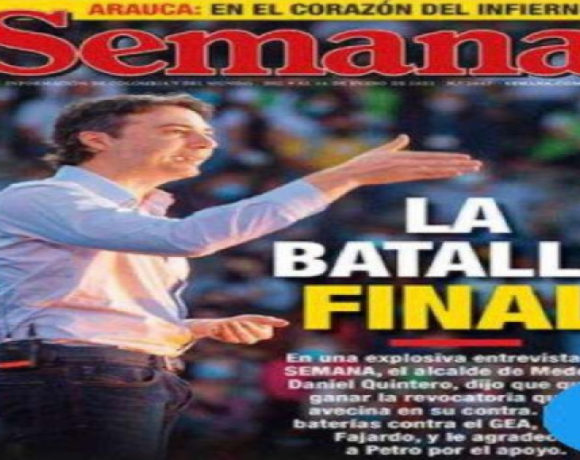Moderate Conservative Duque Clear Favorite for Colombian President

In the first round of presidential elections May 27, moderate conservative Ivan Duque of the Centro Democratico party won the plurality of votes (39%) among five candidates.
Duque will face socialist-populist candidate Gustavo Petro of the “Colombia Humana” party (25% of first-round votes) in the second-round runoff election on June 17.
Duque won in 23 of Colombia’s departments (states), while Petro won in eight — including the biggest strongholds of cocaine production (Chocó, Vaupés, Cauca, Putumayo and Nariño), all areas where left-wing extremists including ex-FARC, ELN and other narco-terrorist groups control large territories — and have sympathizers among coca growers and also the socialist dictatorship in neighboring Venezuela, a government that Petro has defended.
Former Medellin mayor, Antioquia governor and public-education proponent Sergio Fajardo – a moderate with big national support among younger voters, students, and sentimental support among many Medellin and Antioquia voters — took third place in the balloting, with 23.7% of the vote.
Fajardo beat all contenders in Bogota, the national capital, while Duque won Medellin handily (followed by Fajardo) and Petro got a paltry 7% of the Medellin vote.
Ironically, Bogota was suppposed to have been Petro’s stronghold. Petro — a former member of left-wing guerilla group M-19 that once murdered Colombia’s Supreme Court members in an attack financed by the late narco kingpin Pablo Escobar — previously was a Bogota mayor (2012 to 2015), but he left a bitter legacy of administrative chaos, political venom and demagoguery that turned-off many Bogota voters.
Given Antioquia’s overwhelming support for political moderate Duque in the first-round balloting, a significant portion of the Fajardo vote is now likely to swing to Duque in the second round, likely ensuring Duque’s final victory, according to analysts.
In total, Duque won 7.567 million votes in the first round, while Petro got 4.8 million and Fajardo gathered 4.59 million. Fourth-place finisher German Vargas Lleras got 7.3% of the votes (1.4 million). Analysts predict that nearly all of those mainly conservative Vargas voters will switch to Duque in the second round.
Duque, a former economist for the Inter-American Development Bank, is a Bogota native and a former Senator for the Centro Democratico party, formed by former President (now Senator) Alvaro Uribe – Colombia’s most popular politician.
In a speech following the first-round election results, Duque praised Fajardo for his life-long dedication to public education and ethical government, and termed the Vargas campaign as “serious.”
As for Petro, Duque stated: “I invite you today to have a campaign where we can debate clearly . . . [W]e are ready to confront ideas and proposals, we are ready to give Colombia a high-level debate, where we can air our differences, so that Colombians can define the course of the country, because I am sure that hope is above class hatred.”
Following a pattern from the primary election earlier this year, which Duque won handily, Petro’s post-election speech once again insulted Duque and his followers.
“The [party] machines went for Ivan Duque, but that’s not the way politics [should be] in Colombia. Either the country returns to violence or continues towards an era of peace. It is not an agreement with the FARC that is being resolved [by this election], it is much more than that,” Petro said.
Duque, who has criticized terms of the “peace” deal between FARC and outgoing President Juan Manual Santos, responded:
“In Colombia, there are no enemies of peace other than those who have used violence to silence the Colombian people. Therefore, we speak clearly to Colombia: we do not want to tear up the [peace] agreements, what we want is to make clear that the Colombia of peace, is the Colombia where peace meets justice, where there is truth, where there is reparation, there is compliance with penalties, and the wishes of the victims are met and repaired.
“For that reason, today I also say clearly that we have to be kind and generous with that guerrilla base that has made the transition to demobilization, disarmament and reintegration. But we have to ensure that they do not reoffend, that they repair their victims, they tell the whole truth, assuming responsibilities and they fulfill their sentences. Because if we do not have that, [then] peace will never be lasting.”
















